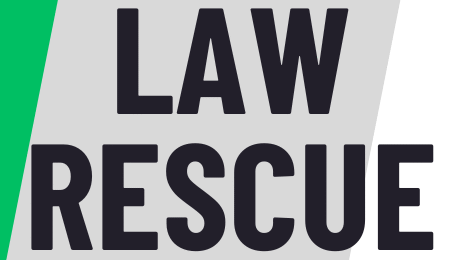Ever wondered what happens after you’re attacked? Do you know how to protect your rights and seek justice?
Knowing your legal rights is key in such cases. An experienced legal professional can help you through the complex process. They ensure you get the compensation you deserve.
Rupin Bal Law Professional Corporation is a trusted law firm for attack victims. Their skilled lawyers will guide you through the legal system. They fight for your rights.
Learning about an assault lawyer’s role is the first step to justice and rebuilding your life.
The Role of an Assault Lawyer in Your Defense
Dealing with an assault charge is complex. A dedicated assault lawyer can make a big difference. They offer the expertise you need when facing serious allegations.
Legal Expertise and Specialization
An assault lawyer knows a lot about Assault Case Defense. They understand the laws, which change from place to place. Their skills include:
- Knowing the different types of assault charges and their consequences
- Being familiar with local court rules and judges
- Learning how to question evidence against you

Protecting Your Constitutional Rights
An assault lawyer’s main job is to protect your rights. This means:
- Making sure you get a fair trial
- Keeping you safe from illegal searches and seizures
- Ensuring your right to remain silent is respected
Navigating the Criminal Justice System
The criminal justice system can be overwhelming. An assault lawyer helps you through it all. They explain:
- The charges against you and what they mean
- What to expect at each stage of the legal process
- How to build a strong defense
An assault lawyer is key in your defense. They offer legal advice, protect your rights, and guide you through the system. Their help can greatly affect your case’s outcome.
How to Avoid Mistakes When Choosing a Personal Injury Attorney
Understanding Assault Charges in the United States
Assault charges, whether they are misdemeanors or felonies, need a deep understanding of the law. This is because these charges can be very complex. Knowing your rights is key, especially since assault laws vary a lot by state.
Different Types of Assault Charges
There are different types of assault charges, based on how serious they are. Simple assault is when there’s just a little physical contact or a threat. Aggravated assault, on the other hand, is more serious, like using a deadly weapon. It’s important to know these differences to build a strong defense.
Misdemeanor vs. Felony Assault
Assault can be either a misdemeanor or a felony, depending on the injury, weapons used, and intent. Misdemeanor assault is less serious and has lighter penalties. Felony assault, however, can mean a lot of prison time and fines. The type of charge affects your defense strategy a lot.
State-Specific Assault Laws
Assault laws differ from state to state. For example, some states have special laws for assault with a deadly weapon. Others might define assault differently. Knowing your state’s laws is essential for a good defense.
A Criminal Defense Lawyer can be very helpful. They can guide you through these complex laws and protect your rights.
10 Tips Before Choosing the Right Personal Injury Attorney
Legal Rights of Assault Victims
Victims of assault have specific legal rights. These rights help them deal with the aftermath of the attack. It’s important to know these rights to get the support and justice you deserve.
Right to Medical Care and Documentation
After an assault, getting medical help right away is crucial. It’s not just for your health. It also helps document your injuries, which is key evidence in court. Your rights include:
- Emergency treatment and stabilization
- Comprehensive medical examination and documentation of injuries
- Follow-up care and treatment for any resulting conditions
Right to Protection from Further Harm
Victims of assault have the right to be safe from further harm. This includes:
- Restraining orders or protective orders against the perpetrator
- Police protection or increased patrols in your area
- Support and guidance from law enforcement and victim advocacy services
Knowing and using these rights can keep you safe and well.
Victim Compensation Programs
Many states have programs to help victims of crime financially. These programs can cover:
- Medical expenses related to the assault
- Lost wages or income due to the victim’s inability to work
- Counseling or mental health services
- Other related expenses
Getting legal help can make sure you get the financial support you’re owed.

Immediate Steps to Take After an Assault
The moments right after an assault are key. Knowing what to do can protect you legally and physically. Your quick actions can greatly affect your safety, health, and any legal steps you might take.
Seeking Medical Attention
First, seek medical attention right away. Even if you don’t feel badly hurt, a doctor can find hidden problems and record your injuries. This medical report is very important if you want to take legal action with an Assault and Battery Attorney’s help.
Reporting to Law Enforcement
Telling the police about the assault is very important. It makes a formal record of what happened, which is key for legal actions. When you report it, try to give as many details as you can about what happened and who did it.

Preserving Evidence
Keeping evidence safe is key for a strong case. This means saving any physical items, like clothes or objects, from the assault. Also, take photos of any injuries or damage.
Contacting an Assault Lawyer
Lastly, reaching out to an Assault and Battery Attorney quickly is crucial. They can protect your rights and guide you through legal steps. An experienced lawyer can offer advice that fits your situation and explain your legal choices.
How an Assault Lawyer Builds Your Case
Your assault lawyer is key in building a strong defense. They investigate, gather evidence, and plan legal strategies. This helps protect your rights during the legal process.
Investigating the Incident
A good defense starts with a thorough investigation. Your lawyer will look closely at the alleged assault. They review police reports, medical records, and video footage.
Gathering Evidence and Witness Statements
Collecting evidence is essential for a strong defense. Your lawyer will gather witness statements and physical evidence. They make sure all evidence is preserved and presented well.
Working with Law Enforcement
It’s important to communicate well with law enforcement. Your lawyer will work with them to understand their view. They ensure your rights are respected during the investigation.
Developing Legal Strategies
Creating a legal strategy involves analyzing evidence and understanding assault charges. Your lawyer will plan a defense that fits your situation. They consider options like plea bargains or going to trial.
Key parts of a successful defense include:
- Challenging the prosecution’s evidence
- Presenting alternative theories of the incident
- Highlighting inconsistencies in witness testimony
With these strategies, your assault lawyer can create a strong defense. This protects your rights and aims for the best outcome for your case.
Self-Defense Claims: When Force Is Legally Justified
Using force in self-defense has different rules in each place. It’s key to know your rights when facing assault charges. Claiming self-defense can be a good legal move, but you must know the law well.
Elements of a Valid Self-Defense Claim
A good self-defense claim has a few main parts. You must show you were in real danger, that using force was needed to avoid harm, and that your response was fair to the threat.
Stand Your Ground vs. Duty to Retreat
Self-defense laws change from state to state. Some states have “stand your ground” laws, letting you use force without moving away. Others have “duty to retreat” laws, making you try to get away before using force. Knowing your state’s laws is very important.
Proportional Response Requirements
It’s also key to show that your response was fair to the threat. Using too much force can hurt your self-defense claim and might lead to criminal charges.
| State | Self-Defense Law | Key Provision |
|---|---|---|
| Florida | Stand Your Ground | No duty to retreat |
| New York | Duty to Retreat | Must attempt to retreat |
| Texas | Stand Your Ground | Presumption of reasonableness |
It’s vital to understand the details of self-defense laws and how they apply to you. Getting legal help is crucial to navigate these complex rules and protect your rights.
The Legal Process for Assault Cases
The legal journey for assault cases has many stages, from investigation to trial. Knowing each step is key for those involved.
Criminal Investigation Procedures
When an assault is reported, law enforcement starts an investigation. They collect evidence, talk to witnesses, and document the scene. A Criminal Defense Lawyer is crucial here, protecting the accused’s rights.
Arraignment and Preliminary Hearings
After the investigation, the case goes to arraignment. Here, the charges are formally presented. At preliminary hearings, the court decides if there’s enough evidence for trial. This is a critical phase in Assault Case Defense, affecting the case’s outcome.
Pre-Trial Motions and Discovery
Before trial, both sides can file pre-trial motions. The discovery process involves sharing evidence and information. A skilled Criminal Defense Lawyer uses this to build a strong defense.
Trial Procedures and Victim Testimony
At trial, both sides present their cases. Witnesses and evidence are presented. Victims may testify, sharing their account of the events. The defense can cross-examine witnesses and present their evidence in an Assault Case Defense.
Understanding the legal process for assault cases is vital. It helps navigate the criminal justice system. With the right legal help, individuals can protect their rights at every step.
Why You Need an Assault Lawyer for Your Case
An assault lawyer is key in protecting your rights and ensuring fair treatment. Assault charges carry high stakes and severe consequences if convicted.
Protecting Your Rights Throughout the Process
An experienced assault lawyer will protect your constitutional rights. They make sure you get a fair trial and the right to remain silent. They also protect you from illegal searches and seizures.
Ensuring Fair Treatment in the Legal System
Fair treatment is crucial, especially in assault cases. An experienced assault lawyer fights to prevent biases. They ensure the legal process is fair.
| Benefits of Hiring an Assault Lawyer | Description |
|---|---|
| Protection of Rights | Safeguards your constitutional rights throughout the legal process. |
| Fair Treatment | Ensures impartiality and fairness in the legal system. |
| Maximizing Compensation | Works to secure the maximum compensation you deserve. |
Maximizing Compensation and Justice
An assault lawyer defends you and fights for the compensation you deserve. This includes medical expenses, lost wages, and pain and suffering.
Hiring an experienced assault lawyer protects your rights. It ensures the best outcome for your case.
Assault and Battery: Understanding the Legal Differences
If you’re facing charges or seeking compensation for a violent incident, it’s key to know the legal differences between assault and battery. These terms are often used together but mean different things in law. They can greatly affect your case and its outcome.
Legal Definitions and Distinctions
Assault is when someone makes another person think they’re about to be harmed. It’s about the threat or attempt to harm, not the actual touch. Battery, however, is about the actual touch or strike in a harmful or offensive way without consent. The main difference is assault is about the threat, while battery is about the touch.
How Charges Can Be Combined
Often, someone can be charged with both assault and battery if they threaten harm and then touch someone. For example, if someone threatens to punch someone (assault) and then does (battery), they could face both charges. This can lead to harsher penalties.
Impact on Potential Compensation
The difference between assault and battery can also affect your compensation if you’re a victim. In civil lawsuits, proving both can mean higher damages. This shows clear intent to harm and actual harm done. An experienced Assault Lawyer can help you get the most compensation.
Knowing the legal differences between assault and battery is vital for both defendants and victims. Whether you’re facing charges or seeking justice, understanding these concepts can greatly influence your case’s outcome.
Domestic Violence Assault: Special Legal Considerations
Domestic violence assault cases are unique in the legal world. They need a careful approach. Victims face many legal challenges that must be handled with care to protect their rights and ensure justice.
Protective Orders and Their Impact
Protective orders are key in domestic violence cases. They keep victims safe by legally stopping the abuser from coming near. These orders greatly affect the victim’s safety and legal standing.
Mandatory Arrest Policies
Mandatory arrest policies are also important. They require police to arrest if they think domestic violence has happened. This policy aims to protect victims and hold abusers accountable, but it can sometimes lead to both sides being arrested.
Support Services for Domestic Violence Victims
Support services are crucial for victims. They offer counseling, legal help, and emergency housing. These resources help victims seek justice and start anew.
If you’re a victim of domestic violence assault, getting help from a Defense Attorney or legal team is vital. They can protect your rights and help you get the support and justice you need.
Finding the Right Assault Lawyer for Your Situation
Finding the right assault lawyer is key. They must understand your case and know how to defend you well. The right lawyer can greatly impact your case’s outcome.
Qualifications to Look For
When looking for an assault lawyer, check their qualifications. They should specialize in criminal defense, especially assault cases. Look at their education, bar membership, and certifications.
It’s also important they have experience with cases like yours. This experience can help them defend you better.
Questions to Ask During Consultations
Prepare questions for your initial lawyer consultations. Ask about their experience with assault cases and how they plan to defend you. It’s also important to know how they will keep you updated throughout your case.
Understanding Fee Structures
Before hiring a lawyer, understand their fees. Lawyers may charge by the hour, a flat fee, or a retainer. Make sure you know what’s included in their fees and any extra costs.
The Importance of Experience in Assault Cases
Experience is crucial when choosing an assault lawyer. A lawyer with a strong track record in assault cases knows the legal details and possible defenses. They also have good relationships with prosecutors and judges, which can help in negotiations or court.
| Qualification | Description | Importance |
|---|---|---|
| Specialization in Criminal Defense | Lawyer specializes in criminal defense, particularly assault cases. | High |
| Experience with Assault Cases | Lawyer has handled cases similar to yours. | High |
| Relevant Certifications | Lawyer holds certifications relevant to criminal defense. | Medium |
By carefully evaluating these factors, you can find a competent assault lawyer. They will be ready to handle your case and protect your rights.
Civil Lawsuits Following an Assault
If you’ve been assaulted, knowing your civil litigation options is key. Civil lawsuits offer victims a way to seek justice outside of criminal courts.
How Criminal Cases Affect Civil Claims
The result of a criminal case doesn’t decide a civil lawsuit’s outcome. Even if the defendant is found not guilty, they can still face civil liability. This is because civil cases have a lower burden of proof than criminal ones.
Types of Damages Available to Victims
Victims can claim different damages in a civil lawsuit. These include:
- Compensatory damages for medical costs, lost wages, and pain and suffering
- Punitive damages to punish the defendant
- Restitution for financial losses due to the assault
Statute of Limitations for Civil Claims
The time limit for civil assault claims varies by state. It can range from one to six years. It’s crucial to talk to an assault lawyer to find out your case’s deadline.
Burden of Proof Differences
In civil cases, proving a defendant’s liability is easier than in criminal cases. You only need to show it’s more likely than not they are liable. This is called a “preponderance of the evidence.”
Understanding the differences between criminal and civil cases helps you decide on a civil lawsuit. This way, you can seek the compensation you deserve.
Victim Advocacy and Support Resources
If you’ve been a victim of assault, you have many resources available. These include advocacy programs, counseling, and financial help. They aim to support you during the legal process and help you heal.
Victim Advocacy Programs
Victim advocacy programs offer vital support. They help you understand the criminal justice system. An experienced lawyer can also be part of this support, guiding you through legal steps.
Counseling and Mental Health Support
Counseling and mental health services are here to help. They are key for your emotional and mental recovery after an assault.
Financial Assistance Options
There are financial help options, like victim compensation programs. They can cover medical costs and other expenses from the assault.
Long-Term Legal Considerations After an Assault
Understanding your long-term legal rights is vital after being assaulted. An assault can have lasting impacts. It’s essential to secure your future through legal protections.
Ongoing Protection Orders
Ongoing protection orders are a crucial legal tool for many assault survivors. These orders can provide a layer of safety. They also offer legal recourse if the perpetrator attempts to contact or harm you again. Consulting with an Assault Lawyer can help you understand how to obtain and maintain these orders.
Addressing Future Safety Concerns
Addressing future safety concerns involves creating a safety plan. You might also work with law enforcement and your Defense Attorney to ensure you’re protected.
Rehabilitation and Recovery Rights
Survivors have the right to rehabilitation and recovery resources. This includes medical care, counseling, and potentially financial compensation for your experiences.
Protecting Your Future After an Assault
After an assault, knowing your legal rights is key. Getting the right legal help is also crucial. Assault charges can lead to serious outcomes. You need experts to guide you through the legal maze.
You have the right to seek justice and get compensation for your harm. An experienced assault lawyer can build a strong case for you. They make sure your rights are protected every step of the way.
Legal help lets you understand the charges and plan your defense or seek compensation. Don’t wait to talk to a skilled assault lawyer. They can help you explore your options.
Protecting your future after an assault means taking action. Make sure your rights are protected. And get the support and compensation you deserve.
Frequently Asked Questions
What is the function of an assault attorney in representing clients?
An assault attorney provides legal counsel and safeguards your rights. They assist you in navigating the criminal justice system. This guarantees equitable treatment and justice.
What are the various categories of assault charges?
Assault accusations range from misdemeanors to felonies. This is contingent upon the incident’s severity, the utilization of weapons, and the extent of victim injuries. State legislation additionally influences categorization and sanctions.
What are my entitlements as a victim of assault?
As a victim, you possess rights. You are entitled to medical treatment, safeguarding, and restitution. You possess the right to pursue justice via the judicial system.
What immediate actions should I undertake following an assault?
Seek medical assistance and notify law enforcement following an assault. Preserve evidence and consult an attorney. This safeguards your rights and facilitates the construction of a robust case.
In what manner does an assault attorney construct a robust defense?
An attorney conducts an investigation and collects evidence. They engage with witnesses and collaborate with law enforcement. They employ legal tactics to construct a robust defense and get the optimal outcome.
What is the components of a legitimate self-defense assertion?
A legitimate self-defense assertion requires a belief in impending danger and a proportional reaction. Compliance with state regulations, such as the stand your ground doctrine or the responsibility to retreat, is necessary to legitimize the use of force.
What distinguishes assault from battery?
Assault constitutes a threat or an attempt to inflict injury. Battery constitutes physical touch or injury. Charges may be consolidated. This affects compensation and penalties.
What criteria should I consider while selecting an appropriate assault attorney for my case?
Examine a lawyer’s credentials and expertise in assault litigation. Evaluate their charges and the inquiries made during consultations. This guarantees the selection of the most suitable attorney for your case.
Am I permitted to initiate a civil case following an assault?
Indeed, you are permitted to initiate a civil claim for compensation. This encompasses medical costs, missed income, and emotional distress. The burden of proof differs in criminal situations.
What resources are accessible for victims of assault?
Victims may receive support from advocacy programs, psychological services, and financial aid. These resources facilitate their recovery and reconstruction of their life.
What are the enduring legal implications of an assault?
Subsequent to an assault, you may need to address protective orders and safety issues. It is essential to address rehabilitation and recovery rights. This guarantees your continuous welfare and safety.
What is the impact of criminal cases on civil claims pertaining to assault?
A criminal conviction can facilitate civil claims. It can provide evidence and support damages. Nonetheless, criminal and civil proceedings are distinct. They possess distinct burdens of proof and results.

